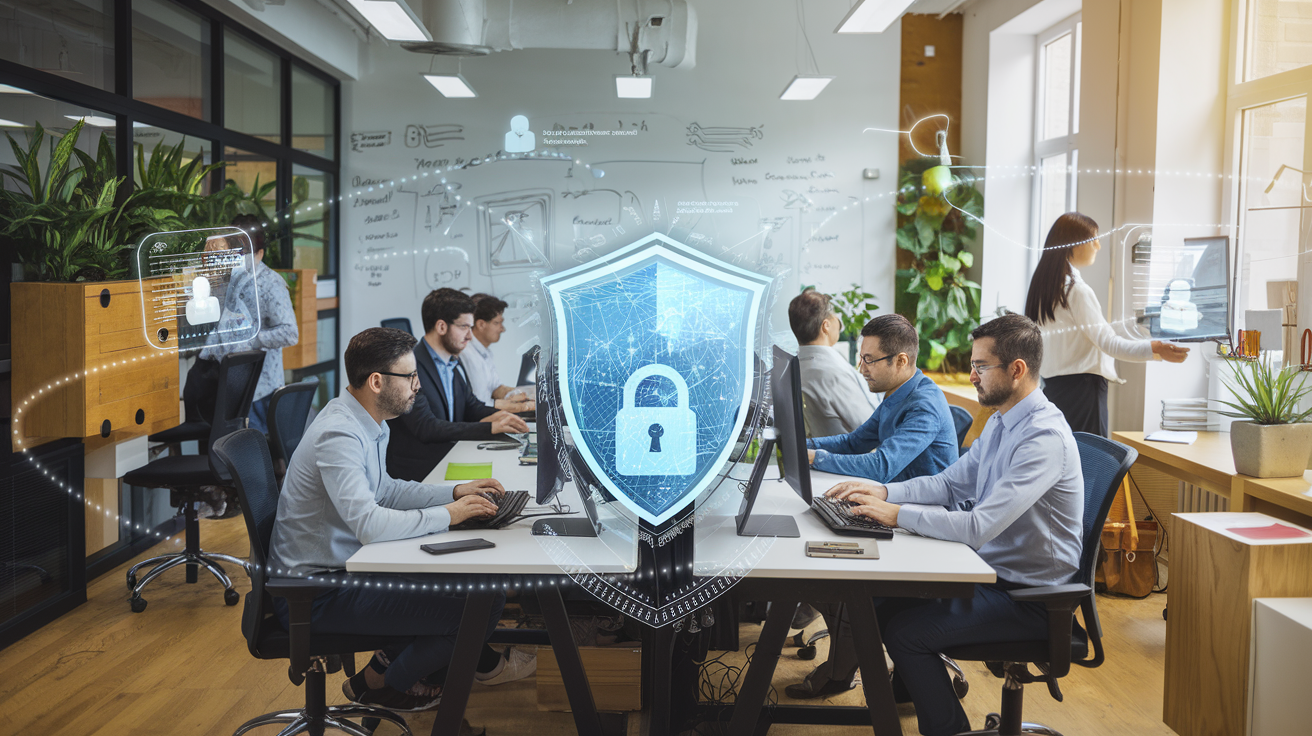by
DE Web Works
| Feb 20, 2025

Hey there, small business warriors! 🌟 In our digital age, technology is your trusty sidekick, helping you save time and money. But lurking in the shadows are cyber threats, ready to pounce when you least expect it. So, how do you keep your business safe? Let's explore the cybersecurity essentials every small business should know.
Why Cybersecurity Matters for Small Businesses
You might think your business is too small to be a target, but cybercriminals love easy prey. Here's why you should care:
- Data Loss and Theft: Losing sensitive information can hurt your wallet and your reputation.
- Downtime: Attacks can stop your operations, costing you time and money.
- Customer Trust: Your clients expect their data to be safe. A breach can break that trust.
Cybersecurity Tips to Keep Your Business Safe
1. Strong Password Policies
You've heard it a million times: use strong passwords! Here's the scoop:
- Complexity: Mix it up with uppercase, lowercase, numbers, and special characters.
- Length: Aim for at least 12 characters.
- Uniqueness: Don’t reuse passwords.
Try a password manager to keep track of them all.
2. Regular Software Updates
Think of updates as digital door locks. They fix security holes that hackers exploit. Keep your operating system, antivirus software, and web browser up to date.
3. Employee Training and Awareness
Your team is your first line of defense. One click on a bad link can cause chaos. Train them to spot phishing emails and other cyber threats.
- Phishing Simulations: Test their skills with mock phishing attacks.
- Reporting Protocols: Encourage them to report anything fishy ASAP.
4. Data Encryption
Make sure your sensitive data is encrypted. Even if hackers get in, they won't understand a thing without the decryption key. Encrypt:
- Emails
- Files stored in the cloud
- Data on mobile devices
5. Firewalls and Antivirus Software
Think of firewalls as the moat around your digital castle. They keep out unwanted visitors while letting the right ones in. Pair a strong firewall with antivirus software for extra protection.
6. Regular Backups
Data loss can happen anytime. Regular backups make sure you can bounce back fast. Consider:
- Frequency: Daily or weekly backups.
- Storage: Use both local and cloud storage.
- Testing: Check your backups regularly.
7. Secure Wi-Fi Networks
Make sure your Wi-Fi is secure:
- Change Default Passwords: Default passwords are easy to guess.
- Use WPA3 Encryption: It's the latest and greatest.
- Hide Your Network: Disable SSID broadcasting to stay hidden.
8. Incident Response Plan
Breaches can happen. Be ready with an incident response plan:
- Identification: Spot the breach.
- Containment: Stop it from spreading.
- Eradication: Get rid of the threat.
- Recovery: Restore your systems and data.
- Review: Learn from the incident.
FAQs
Q: What’s the biggest cybersecurity threat to small businesses?
A: Phishing attacks are super common. They trick employees into revealing info or downloading malware.
Q: How often should we do cybersecurity training?
A: Aim for quarterly sessions. Keep your team sharp and informed.
Q: Can small businesses afford cybersecurity?
A: Absolutely! Affordable solutions exist, and they're cheaper than dealing with a breach.
Q: Is cybersecurity only about technology?
A: Nope! It's also about people and processes. Tech is just one piece of the puzzle.
Conclusion
Cybersecurity is not just an IT issue; it’s a business priority. Embrace a proactive approach and protect your digital assets. Implement these essentials and stay confident in the digital world. Remember, securing your business is an ongoing journey. Stay vigilant, stay informed, and keep your digital doors locked tight! 🔒
👉 To secure your business, visit our Security Essentials page.